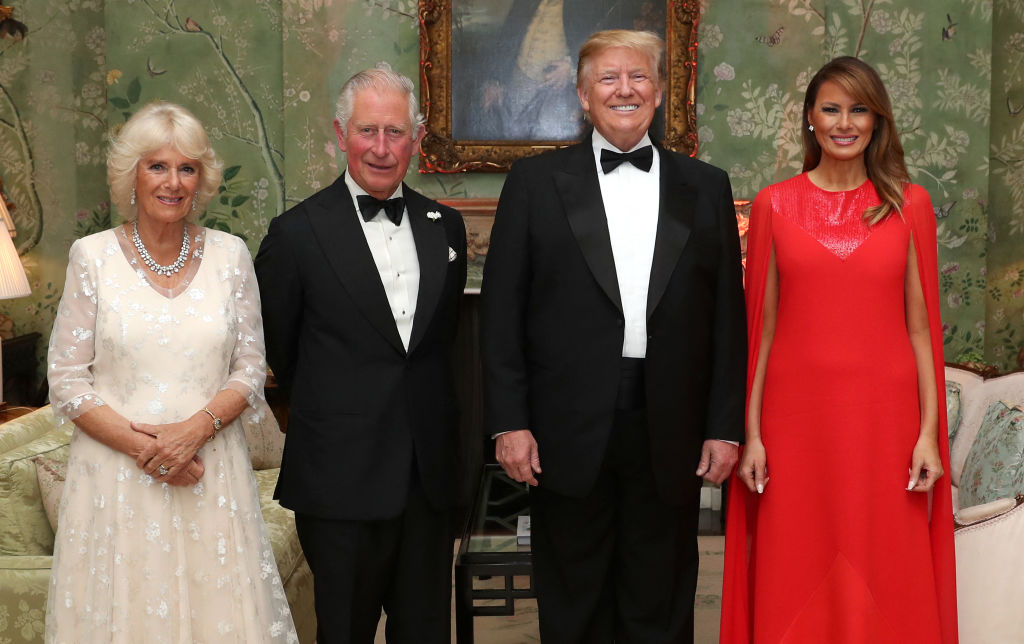For more than a century, Powell points out, the British had been used to “Britain” also meaning India, and had thus, as he puts it, “got into the habit of thinking in what are sometimes called ‘global terms’”. In Powell’s view, having lost that real-world geographic reach, Britain should have refocused on Western Europe. But instead, unable to relinquish their habitual global perspective, the British elite conjured two ideas from the rubble of empire and war: firstly, the “Commonwealth”, and secondly the “special relationship” in which we were to be Greece to America’s Rome, in the joint pursuit of universal peace.
As Powell saw it, this represented a colossal self-delusion, in which “the vanishing last vestiges […] of Britain’s once vast Indian Empire have transformed themselves into a peacekeeping role on which the sun never sets, whereby […] in partnership with the United States we keep the peace of the world”. To him, this was a confection whose lack of basis in logic or reality was only outstripped by fantasies about the Commonwealth, an organisation he saw as riddled with contradiction and whose demands often ran counter to British national interest.
The half-century since Powell’s heyday doesn’t seem to have cured British elites of such fond dreams. Rather, it has compounded them by adding a third: the pan-European post-imperial project of mutual colonisation usually referred to as the EU. (Powell opposed this as well, also presciently, on the grounds that it would harm Parliamentary sovereignty.) And though Brexit went some way, for better or worse, to reversing Britain’s entanglement in that project, we still possess the same Hyacinth Bucket-like fixation with “Britain’s standing” on “the world stage”.
Nor have we shed the slavish commitment to showing “leadership” by outdoing even America in pursuit of US foreign policy priorities. Meanwhile, not even increasingly strident demands for “reparations” from supposed friends and allies in the “Commonwealth” seem capable of shifting the entrenched British ruling-class conviction that this entity is in some fundamental way a good and necessary thing for our country.
But one of the crucial pillars on which Britain’s post-war, post-imperial cope rested was always American geopolitical neutrality. The idea was that we needn’t mourn the empire, which was bad anyway, because Anglophone cultural and economic leadership would persist — it would just shift its capital, wealth, and geopolitical interests several thousand miles west. But it would still be “the West”, still the English-speaking world, and still, however tenuously, the same cousinly spirit.
But the idea that Britain is a “leader” alongside America in keeping global peace relies on America both doing the defence legwork, and also making at least a nominal effort to look neutral. Where does that leave Britain, then, if the former is on the chopping-block and the latter risks being jettisoned for a new Arctic “Great Game”? In the genuinely post-liberal geopolitics this would produce, Britain is unlikely to be able to go on sitting in the current three-way intersection between Europe, the “Commonwealth”, and the Cousins.
This juggling act surely only lasted as long as it did because America’s self-appointed “global policeman” role prevented any of this trifecta’s more delusional implications from biting too deeply. But swap out global-policeman America for expansionist America and things quickly get messy. Should Trump actually annex Canada, for example, a Commonwealth state of which King Charles remains (however nominally) head of state, how should Britain respond? Similarly, should he make moves on the currently self-governing Danish territory of Greenland, should Britain come down on the side of our European neighbours, or the “Cousins”?
Should Trump actually annex Canada, how should Britain respond?
At least some in Britain clearly feel closer kinship with English-speakers across the pond than our neighbours across the Channel. There have, for example, been recent calls both in Britain and the US for a much more special relationship; even for Britain’s annexation by the Cousins. Especially for those younger, more tech-optimistic “Right-wing Progressive” Brits with portable careers and an eye on the Elon Musk phenomenon, absorption by the USA would likely read more as a formality than a significant change — and in any case as a more advantageous proposition than cosying up to a stagnant and censorship-happy EU.
In terms both of Europe’s resurgent Right-wing ethnopolitics and Britain’s specific history, it would in fact make perfect Right-wing sense. Having sailed our barometers around the world, leaving diaspora communities worldwide, it follows logically that a putative ethnopolitics of Englishness would look beyond as well as within the British Isles, toward that diaspora as well. (Whether such a diaspora would want anything to do with modern Britain is, of course, a separate question.)
For those still committed to European-style social democracy, meanwhile, our immediate neighbours might seem more ideologically congenial than the New World, not to mention more geographically relevant. And Britain’s now-considerable Commonwealth-heritage population, meanwhile, has far fewer direct historic links to the USA. For such groups, “Cousins” is unlikely to conjure a picture of mid-century WASPs.
It is too early to tell which way Britain will jump, though Starmer’s reverse ferret this week on the Chagos handover may be a sign of things to come. But we are leaving the inshore waters of the long 20th century — and, as the seafarers used to say, the glass is falling. For, to extend Macmillan’s classical analogy, the Cousins seem on a trajectory from republic to empire. And if this is so, Britain’s long era of self-delusion will soon be at an end, and with it the deferral of hard choices. What matters more to us: our legacy of empire, our near abroad, or our historic diaspora? I’m not sure I want to find out. But Britain has no prospect of charting a new course until we are willing to face these questions.
